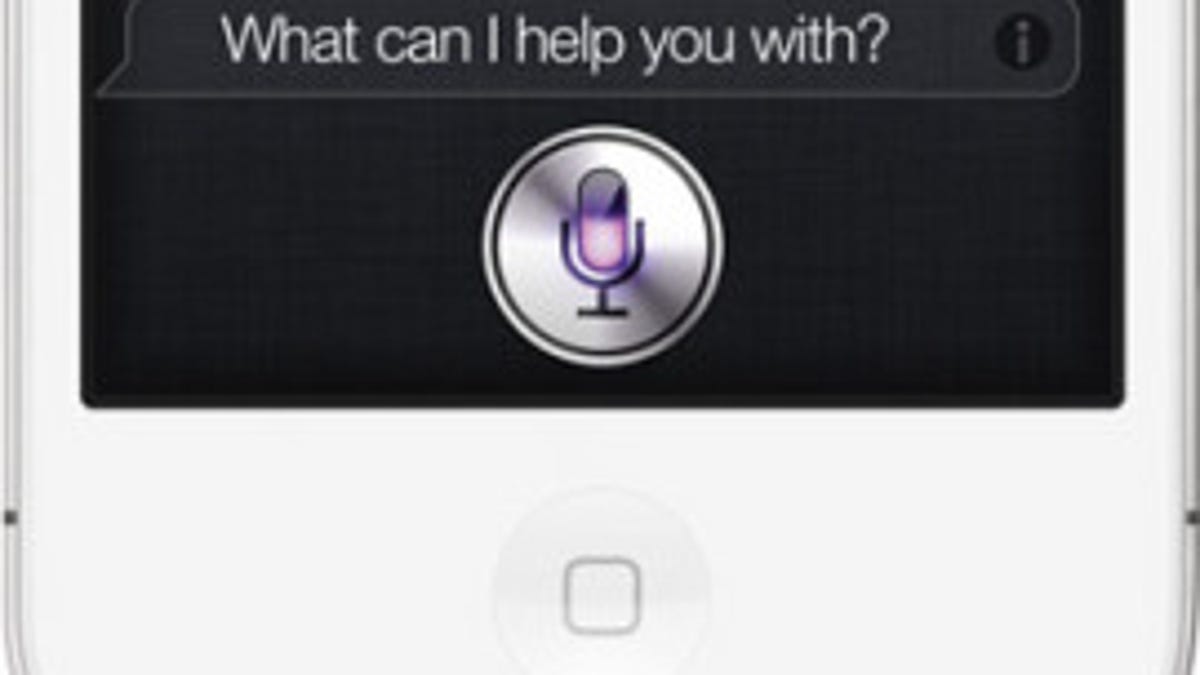Do you still talk to Siri?
The New York Times calls Siri a romance that's gone sour. Has Siri lost her appeal to iPhone users?

Siri was hailed as a innovation when it was unveiled with the iPhone 4S. But do iPhone owners still talk to her?
In a column for yesterday's New York Times, writer Nick Bilton said he believes the romance may have soured between Siri and her users.
Initially enthused about the new voice assistant, Bilton found that too many of his conversations ended up in a failure to communicate, with Siri either unavailable or unable to provide the right information. And he doesn't seem to be the only one having communication problems with Siri.
Bilton also noted that many people he spoke to have turned Siri off and instead use the iPhone's own voice dictation system (the microphone that appears at the bottom of the keyboard) because it seems more reliable.
The Times column also pointed to a recent test run by Piper Jaffray analyst Gene Munster. The analyst gave Siri a grade of D at correctly understanding spoken queries. That compared with a B given to Google's comprehension of typed queries.
Though comparing spoken requests with typed requests doesn't sound fair, Munster said Siri has to match or surpass Google before people think of her as a viable search engine alternative.
Apple has dubbed Siri a beta, which indicates that it's still a work in progress. And Munster believes iOS 6 will see further improvements to the voice assistant.
But are iPhone 4S users giving Siri the cold shoulder at this point?
I can only speak for myself. I don't use Siri nearly as much as I did when I first picked up the new iPhone. Some of that is just force of habit.
For whatever reason, Siri never became fully immersed in the way I use the iPhone. I do rely on her for certain tasks, such as dialing a new phone number or setting a reminder. But for other tasks, including getting directions or running Web searches, I more frequently use a dedicated app.
I think Siri turned me off a bit when I saw how error-prone she could be. Many times in the past I'd run a request past Siri, only to have her deliver the wrong results or apologize for not being able to help me due to some mysterious technical issue. I'd repeat or rephrase the request, often to no avail, forcing me to tap and type the information the old-fashioned way.
I also learned that phrasing can be problematic with Siri. Most voice-recognition systems can be finicky in the way you phrase a question or statement. Say it the wrong way, and they don't have a clue what you're talking about.
Siri's no different. My wife sometimes gets frustrated with Siri because she phrases a question in a way I know Siri won't understand. And before I have a chance to explain the problem, the two get into a standoff in which Siri seems confused by my wife's frustration and offended by her use of certain language.
After too many of those experiences, I think I've lost some of my confidence in Siri. That might be why I tend not to consider her as the first step when adding or looking up information. It's kind of like giving her the brush off before she has a chance to reject me.
I still think Siri is a promising concept, and perhaps I've been too quick to dismiss her at times. But she definitely needs some improvements under the hood before she can become ingrained in the way I use the iPhone.

